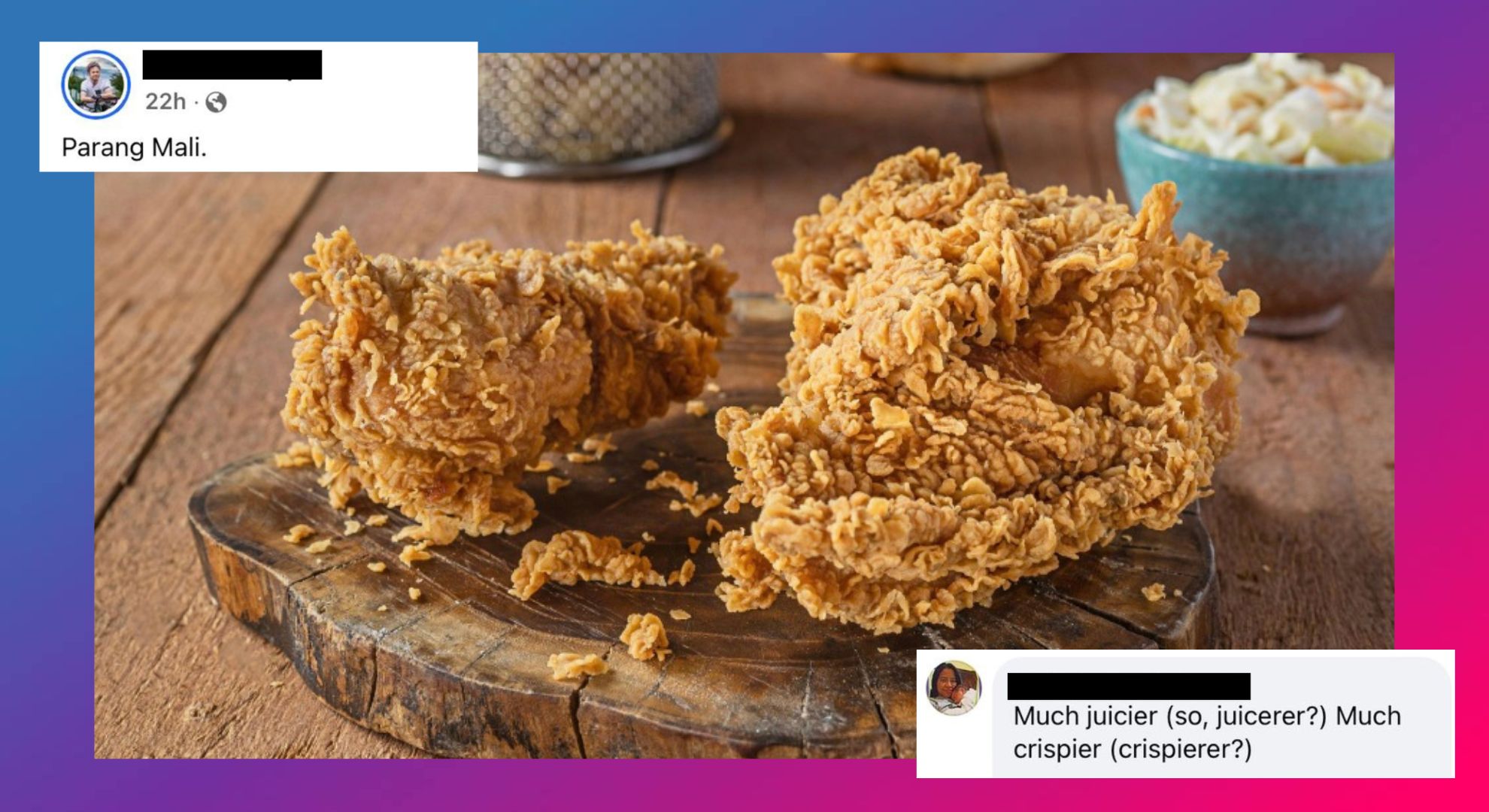Few topics provoke as much perfectionism—or is it just pedantry?—but we rarely see one in a major ad campaign for one of the largest companies in the world.
Recently, a promotional ad for a fast food restaurant’s chicken offering has drawn attention from Filipino social media users, thanks to its tagline spotted and filed under ‘grammatically incorrect’ by Filipinos.
The fast food restaurant, renowned also for its high caliber advertising, frequently defies standards of what ads should look like, with its inventive campaigns. However, on social media, people couldn’t help but argue about the grammatical construction of their advertising slogan, “Much malaki, Much juicier, Much crispier,” on their new billboard ad.

According to Abel Ulanday, INQUIRER.net’s Editor-in-Chief, the company’s ad slogan is not grammatically correct. “If the fast food restaurant intends to describe its products as full of something more, then that’s the word to use—more juicy or more crispy. If it’s just for comparative purposes, then juicy, juicier, and juiciest should be enough,” he said. “I suspect, though, that the restaurant intends to make the slogan more catchy and popular by doing just that. It’s a marketing gimmick to draw more attention and controversy to the company and its products. And I think it’s succeeding and working,” he added.
A similar opinion was expressed by Prof. Ma Lourdes Olegario, Language Director and English professor at the National University, who pointed out that the tagline is grammatically incorrect, adhering to the Prescriptive viewpoint. It seemed like combining the suffixes -er and much with the comparative and superlative degrees of the adjectives. As to the descriptive perspective, the slogan employs non-standard grammar by combining the two languages of English and Filipino for stylistic effect rather than ‘grammaticality’, mostly to draw in customers.
Additionally, they emphasized that, according to grammar textbooks or lectures, comparative adjectives will have the suffix -er added or preceded by “more” or “much,” but superlative adjectives would have the suffix -est added or preceded by “most.”
“Advertisers are increasingly using “incorrect” grammar as a strategy to promote their products or services. Known as “unconventional” or “non-standard” grammar, it aims to make people pause and pay attention to the message being presented. Of course, the primary goal of advertising is to capture people’s attention, and techniques such as wordplay, intentional grammatical errors, and the absence of punctuation, are effective methods for achieving this,” Prof. Olegario stated. “When consumers encounter incorrect grammar in advertisements, they might initially believe it to be a genuine mistake. However, advertisers recognize it as an effective way to appeal to a younger audience,’ she went on.
Other POP! stories that you might like:
Misinformation and deepfakes proliferate as integration of AI in journalism continues
‘Paid Award’ rumors spark following recognition of Pinoy ‘Leonardo da Vinci Award’ recipients
20+ unhinged comments found on Lenka’s Instagram after ‘Selos’ controversy
Internet responds to tweet slamming medical interns and clerks for watching The Eras Tour



